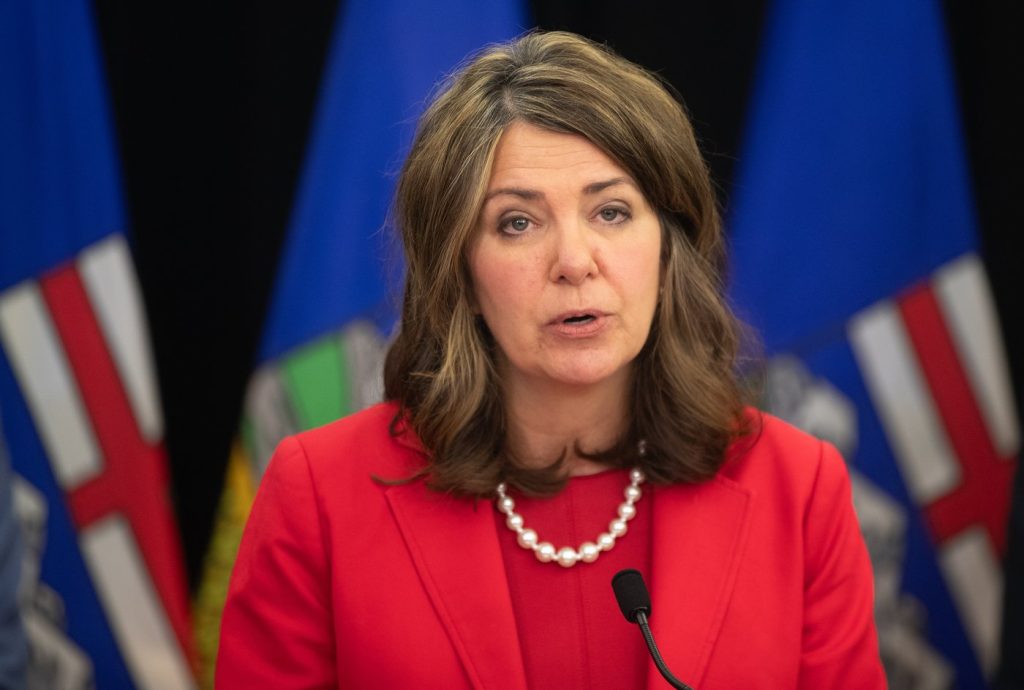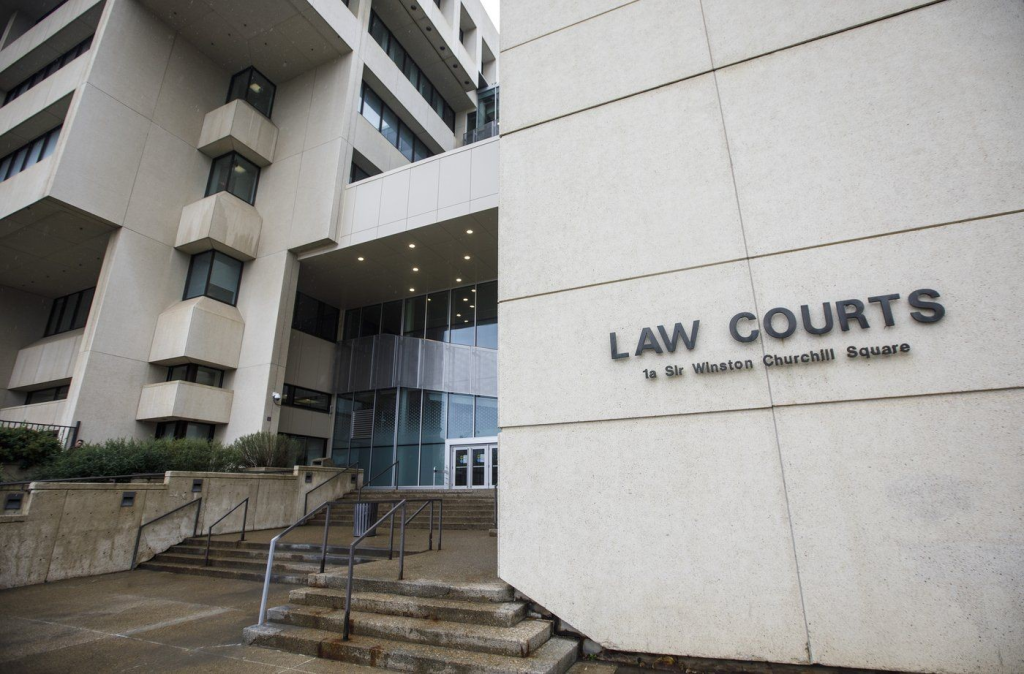Alberta UCP table amended Bill of Rights, paving way for vaccine refusal, involuntary addictions treatment

Posted October 28, 2024 3:11 pm.
Last Updated October 28, 2024 3:55 pm.
Albertans working for public entities will have the ability to refuse medical treatment, including vaccines, under amendments to the Bill of Rights tabled in the legislature Monday.
The first day of the fall Legislature sitting painted a clear picture of what the governing United Conservatives plan to do on several hot-button issues like medical autonomy, gun ownership and property rights.
The province says at issue is outdated law that lacks legal provisions for the modern day.
“In an ever-evolving world, we must be vigilant to ensure that the rights and freedoms along all Albertans continue to be protected,” said Premier Danielle Smith.
But critics, including the Opposition New Democrats (NDP), say the premier is simply catering to an extremist base ahead of her leadership review.
Changes to healthcare
One of the amendments gives Albertans, with capacity, the ability to refuse medical care, medical treatment, or a medical procedure, unless a person is likely to cause “substantial harm” to themselves or others.
This could be key in enacting involuntary treatment legislation, which could place Albertans with severe drug and alcohol addictions into treatment without their consent. First introduced in April 2023, Premier Smith referred to the potential legislation as the Compassionate Intervention Act.
Individuals — also considered to have “capacity” — will also have the right not to be forced into receiving a vaccine. Government officials say this amendment would apply only to public entities, meaning private businesses would have the ability to introduce something like a vaccine requirement.
“Currently, when an individual claims an infringement of rights protected under the Bill of Rights, the court is limited to applying the law so that it doesn’t infringe on these rights,” explained Alberta Justice Minister Mickey Amery.
“We want to make sure that people who are of sound mind are able to make their own choices and have the ability to consent to do so or reject,” Smith added.
The province says many of the changes relate to the recommendations in the final report of the Public Health Emergencies Governance Review Panel, which was chaired by former Reform Party leader Preston Manning and had a budget of $2 million.
The report, released in November 2023, called for rule changes to ensure the premier and cabinet have the last word in future crises.
Manning also recommended all province-wide emergencies be directed by cabinet and implemented through the Alberta Emergency Management Agency. Under that direction, all future pandemics or health crises would see Alberta Health Services make recommendations strictly related to health matters, and the government would make all decisions through the emergency agency.
It also encouraged the consideration of “alternative” scientific theories.
Freedom of expression
Another addition is the expansion of the right to freedom of expression, casting a wider net to exceed the written and spoken word, This change would cover actions like photos on signs at events.
This comes on the heels of news the province would introduce limits on professional regulatory bodies including legislation which restricts how they can police their own members.
Firearms and property rights
Property rights will also be expanded; the province says a law would be the only authorization under which someone could be deprived of the enjoyment of their property, and the same would go for when government takes property, for which adequate compensation would need to be provided.
Rounding out the changes to the more than 50-year-old bill is amendments to gun laws.
The province says the new Bill of Rights will allow Albertans to acquire, keep, and use firearms in accordance with the law, “reinforcing the right to lawful ownership and affirming government’s intent that provincial laws should not interfere with the right to own legally acquired firearms.”
Firearms laws are enacted and enforced by the federal government.
What is the Alberta Bill of Rights?
First introduced in 1972, the Bill of Rights protects Albertans from laws of and actions by the provincial government. It doesn’t apply to federal laws or to actions by the federal government, the private sector, or individuals.
The Canadian Charter of Rights and Freedoms protects Canadians from both laws and actions of the federal and provincial governments. The Alberta Human Rights Act applies to actions of the private sector.
Currently, the Bill protects the individual right to liberty, security of the person and enjoyment of property, the right to equality before the law and the protection of the law, as well as freedom of religion, speech, assembly and association, freedom of the press, and the right of parents to make informed decisions about their children’s education.
The province says the act states that every law in Alberta is to be interpreted and applied so as not to limit or interfere with the rights in the Alberta Bill of Rights.
The law would apply to all provincial government action, including policies, programs, and organizations that run under extensive government control, like municipalities and police services.
However, much of the new law would be left up to interpretation by the courts if someone were to enact a challenge.
Critics call motive into question
NDP leader Naheed Nenshi said last month, in the wake of news surrounding changes to the Bill of Rights, that the Smith government’s proposed changes are “desperate virtue signaling.”
He said the premier playing to her base is not only a source of irritation, but could lead to real consequences and that Albertans are more focused on inflation and having a decent job than their ability to refuse a vaccine.
Nenshi says the changes are only an appeal to far-right UCP members ahead of the premier’s leadership vote this weekend.
“Probably the brain trust in Danielle Smith’s office thinks this will help her on Saturday,” the Alberta NDP leader said. “So here’s the thing: they are going to present some 12-14 bills this term. Not one of them is about affordability. The only thing they’re saying on health care is denying gender-affirming care to a tiny number of youth.”
Political scientists have also said changes to the law are “purely symbolic” as the federal government still has the final say on several avenues, like firearms.
Once introduced into the Legislature, the bill will be debated and voted on by Members. If passed, it would go on to receive Royal Assent, at which point, it would become law.
–With files from Sean Amato








